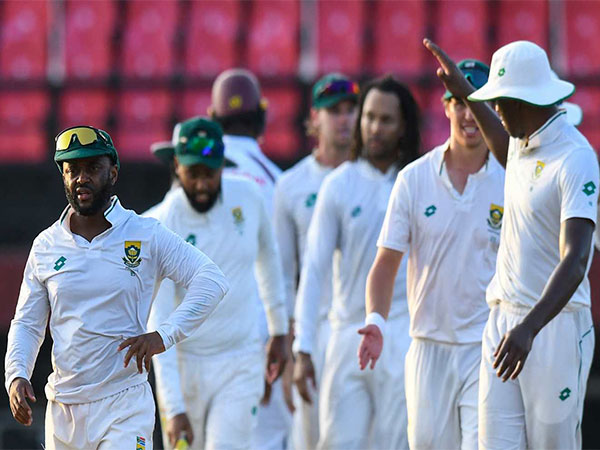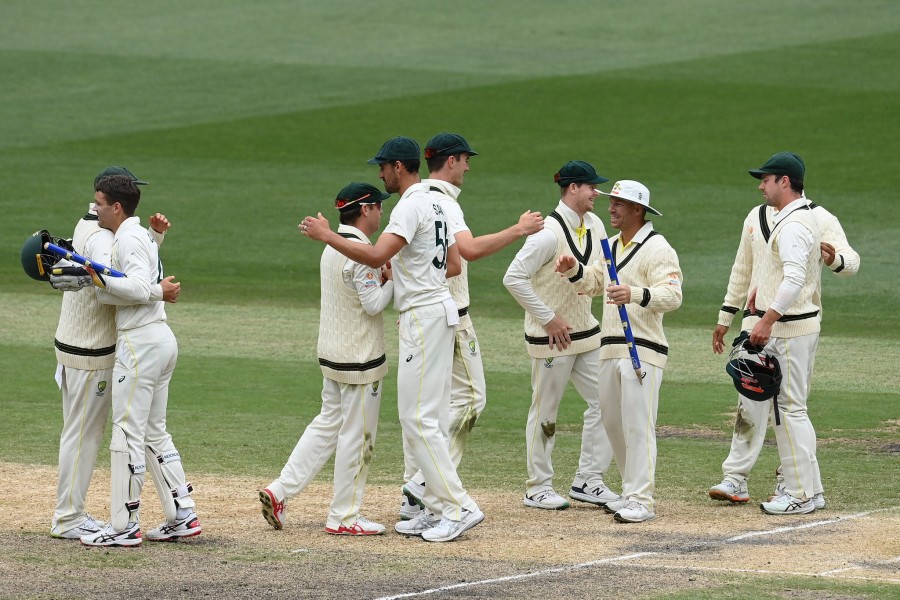South Africa’s WTC has achieved the pinnacle of Test cricket by winning the World Test Championship (WTC) 2023-2025, ending a 26-year wait for an ICC title. South Africa won the match by 5 wickets to win the third edition of the ICC World Test Championship. This marked South Africa’s maiden win of the Championship. The historic victory at Lord’s represents more than just a trophy—it symbolizes the culmination of years of rebuilding, strategic planning, and exceptional cricket performance.
South Africa’s WTC glory has been marked by consistent performances, tactical brilliance, and the ability to overcome their notorious reputation for faltering in crucial moments. This comprehensive analysis examines South Africa’s path to World Test Championship success and its significance for cricket in the nation.
Understanding the World Test Championship Format
WTC Structure and Qualification
The World Test Championship operates as a two-year cycle where the top nine Test-playing nations compete in bilateral series. The tournament consists of 69 matches played between nine teams across 27 series, with teams earning points based on their performance in each series.
The championship uses a points percentage system to determine rankings, accounting for the varying number of matches played by different teams. This format ensures fairness while maintaining the traditional bilateral structure of Test cricket.
Teams accumulate points through victories and draws, with the top two teams at the end of the cycle qualifying for the final. The system rewards consistent performance across different conditions and against various opponents.
Evolution of the WTC
The inaugural ICC World Test Championship started with the 2019 Ashes series and finished with New Zealand lifting the trophy after defeating India in the final in June 2021. The championship has provided much-needed context and meaning to bilateral Test series.
The second cycle (2021-2023) saw Australia claim the title, establishing themselves as the dominant force in Test cricket. That final saw Australia win by 209 runs, thus becoming the only team to win all ICC titles.
Each WTC cycle has brought refinements to the format, with the ICC continuously working to balance competitive integrity with the traditional structure of Test cricket.
South Africa’s Road to the 2025 Final
Building the Foundation
South Africa’s journey to the WTC final began with a systematic rebuilding process under captain Temba Bavuma. The team focused on developing a strong home record while improving their overseas performances, particularly in challenging conditions.
They’ve won nine Tests under Temba Bavuma’s captaincy without a defeat. This remarkable record demonstrates the team’s consistency and the effectiveness of their strategic approach under the new leadership structure.
The Proteas’ success stemmed from a balanced approach that combined experienced players with emerging talent, creating a cohesive unit capable of competing in all conditions.
Key Series and Performances
South Africa’s final assignment of the 2023-25 World Test Championship cycle saw Pakistan visit for a two-Test series in December 2024. The first Test at Centurion was a close affair, with the hosts edging out by two wickets in a tricky chase that was capped by Jansen and Rabada’s memorable partnership.
The team’s ability to win close matches proved crucial in their qualification for the final. These nail-biting victories demonstrated the mental strength and composure that would prove essential in the championship match.
Throughout the cycle, South Africa showed remarkable consistency at home while making significant improvements in their away record, a traditional weakness that had previously hindered their chances in global competitions.
Qualifying for Lord’s
South Africa secured their place in the WTC final through superior points percentage, finishing ahead of other contenders in a competitive cycle. Their qualification marked the first time the Proteas had reached a WTC final, providing an opportunity to end their ICC trophy drought.
The team’s qualification was built on solid fundamentals: strong bowling performances, improved batting consistency, and excellent fielding. These core strengths positioned them as genuine contenders for the championship.
The Historic Final at Lord’s
Pre-Match Build-Up
The third World Test Championship Final will be played at Lord’s in London, beginning June 11, 2023, featuring South Africa for the first time, and reigning champions Australia. The match presented South Africa with an opportunity to overcome their historical struggles in major finals.
The psychological pressure on South Africa was immense, given their reputation for falling short in crucial moments throughout cricket history. However, the team’s recent form and mental preparation suggested they were better equipped to handle the pressure.
Australia entered as defending champions and slight favorites, having won the previous WTC cycle and boasting extensive experience in major finals.
Match Dynamics and Key Moments
The final proved to be a low-scoring affair dominated by bowlers from both sides. Fourteen wickets fell yet again on day two at Lord’s as bowlers continued to dominate the Ultimate Test. The challenging conditions at Lord’s created an intense contest where every run was crucial.
At 12.45pm on a sunny Saturday at Lord’s, South Africa secured the most significant moment in their cricket history with the World Test Championship title. It was not without nerves – how could it be? – but this time there was no agony at the end. Aiden Markram took them to the brink with an innings that would define South African cricket.
The match’s tension built throughout the four days, with both teams fighting for every advantage in challenging batting conditions.
Aiden Markram’s Match-Winning Performance
Aiden Markram emerged as the hero of South Africa’s victory, playing a crucial innings when his team needed it most. South Africa lost Bavuma early on day four but Markram’s glorious 136 took them over the line with five wickets to spare.
Markram’s century came under immense pressure, showcasing the temperament and skill required to succeed on cricket’s biggest stage. His innings demonstrated the evolution of South African cricket and the team’s ability to perform when it matters most.
The knock will be remembered as one of the finest innings in World Test Championship history, delivered when South Africa needed to overcome their historical tendency to falter in crucial moments.
Impact of the Victory
Breaking the Drought
This is South Africa’s first ICC title after 26 long years. Their last ICC trophy came in 1998 when they won the Champions Trophy. The WTC victory represents more than just a championship—it validates years of rebuilding and strategic planning.
The victory ends decades of heartbreak for South African cricket fans who had endured numerous near-misses in major tournaments. The psychological barrier has finally been broken, potentially opening the door for future success.
This triumph provides a template for South African cricket, demonstrating that consistent performance and mental strength can overcome historical burdens.
Financial Rewards and Recognition
As winners, they received a cash prize of US$3.6 million, while the Australian team received a cash prize of US$2.1 million. The substantial prize money reflects the importance of the championship and provides financial support for South African cricket development.
The victory brings significant prestige to South African cricket, enhancing the country’s reputation in the global cricket community and potentially attracting increased investment and sponsorship opportunities.
Recognition from the International Cricket Council and global cricket community validates South Africa’s position among the elite Test-playing nations.
Inspiring Future Generations
The WTC victory provides inspiration for young cricketers across South Africa, demonstrating that success is possible through dedication, proper planning, and consistent effort. The triumph offers a blueprint for sustainable success in international cricket.
The victory’s impact extends beyond the immediate celebration, potentially catalyzing increased participation in cricket at grassroots levels and inspiring the next generation of South African cricketers.
Team Composition and Strategy
Leadership Under Temba Bavuma
Captain Temba Bavuma’s leadership has been instrumental in South Africa’s transformation. His approach emphasizes collective responsibility, strategic thinking, and mental resilience—qualities that proved crucial in the WTC final.
Bavuma’s captaincy style focuses on empowering players while maintaining tactical discipline. This approach has created a team culture where individuals can express themselves while contributing to collective success.
The captain’s personal journey, overcoming various challenges to lead his country to glory, provides additional inspiration and demonstrates the power of perseverance in professional cricket.
Bowling Excellence
South Africa’s bowling attack has been the foundation of their success throughout the WTC cycle. The combination of pace and spin, along with tactical flexibility, has allowed them to take wickets in various conditions.
The development of young bowlers alongside experienced campaigners has created depth and options for different match situations. This bowling strength proved crucial in the final’s low-scoring environment.
Strategic bowling changes and field placements throughout the WTC cycle demonstrated the team’s tactical sophistication and adaptability.
Batting Improvements
The batting unit’s improvement, particularly in pressure situations, has been key to South Africa’s success. The ability to construct partnerships and play according to match situations has enhanced their competitiveness.
Markram’s final innings exemplified the batting unit’s evolution, showing technical skill combined with mental fortitude. This development suggests sustainable success for South African cricket.
The team’s batting approach emphasizes patience and partnerships while maintaining the ability to accelerate when opportunities arise.
Historical Context and Significance
South Africa’s Cricket Journey
South African cricket has experienced various challenges throughout its history, from isolation during apartheid to integration difficulties and performance inconsistencies in major tournaments. The WTC victory represents a significant milestone in this journey.
The team’s previous struggles in finals and knockout situations had created a psychological burden that seemed difficult to overcome. Breaking this pattern through WTC success demonstrates the team’s mental evolution.
This victory validates the investments made in South African cricket infrastructure, coaching, and player development over recent years.
Comparison with Previous Campaigns
Unlike previous campaigns that ended in disappointment, the WTC cycle showed South Africa’s ability to maintain consistency over an extended period. The team’s approach emphasized process over results, leading to sustainable success.
The difference in this campaign was the team’s ability to learn from close defeats and build on positive performances, creating momentum that carried them to the final.
Strategic planning and preparation for the WTC cycle demonstrated a more professional approach compared to previous major tournament campaigns.
Future Implications and Prospects
Building on Success
The WTC victory provides a platform for continued success in international cricket. The team’s confidence and proven ability to perform under pressure create favorable conditions for future campaigns.
Maintaining the core group while developing new talent will be crucial for sustaining success in subsequent WTC cycles and other international competitions.
The victory’s psychological impact should translate into improved performances across all formats of international cricket.
Development of Cricket in South Africa
Success at the highest level often catalyzes increased participation and investment in cricket development. The WTC victory could attract more resources to grassroots cricket programs across South Africa.
Enhanced international reputation may attract better coaching resources and create opportunities for knowledge exchange with other successful cricket nations.
The victory provides a positive narrative for South African cricket, potentially reversing declining participation trends and generating renewed interest in the sport.
Setting New Standards
The WTC victory establishes new performance benchmarks for South African cricket. Future teams will be measured against this achievement, creating both opportunity and pressure for continued success.
The success demonstrates that South African cricket can compete at the highest level when proper structures and strategies are implemented consistently.
This victory should inspire confidence in South African cricket’s ability to achieve success in other major tournaments and competitions.
Challenges and Opportunities Ahead
Maintaining Momentum
The challenge for South African cricket is maintaining the standards that led to WTC success while continuing to develop and improve. Consistency across different formats and conditions remains essential.
Player workload management and rotation policies will be crucial for maintaining performance levels while ensuring player welfare and longevity.
Building squad depth to handle injuries and form fluctuations will determine the sustainability of South Africa’s success in international cricket.
Next WTC Cycle Preparation
Preparation for the next WTC cycle begins immediately, with teams already planning their strategies and squad compositions. South Africa must balance defending their title with continued development.
The target on South Africa’s back as defending champions will present new challenges and pressure situations that the team must navigate successfully.
Learning from this WTC cycle’s successes and areas for improvement will be crucial for mounting a successful title defense.
Conclusion
South Africa’s World Test Championship victory represents a watershed moment in the nation’s cricket history. South Africa has won the World Test Championship against titleholder Australia by five wickets after knocking off the last 69 runs required on the fourth morning of the final in London.
The victory validates years of patient rebuilding, strategic planning, and consistent performance. More importantly, it demonstrates that South African cricket has overcome the psychological barriers that previously hindered success in major tournaments.
South Africa join New Zealand and Australia as WTC champions. Three winners in three editions. This achievement places South Africa among the elite Test cricket nations and provides a foundation for future success across all formats.
The WTC triumph offers hope and inspiration for South African cricket, proving that with proper preparation, mental strength, and consistent execution, even the most challenging goals can be achieved. This victory will be remembered as the moment South African cricket finally fulfilled its immense potential on the global stage.
Frequently Asked Questions (FAQ)
When did South Africa win the World Test Championship?
South Africa won the World Test Championship on June 14, 2025, defeating Australia by 5 wickets in the final at Lord’s, London. This was their first ICC title in 26 years.
Who was the star performer in South Africa’s WTC final victory?
Aiden Markram was the star performer, scoring a crucial 136 in the second innings to guide South Africa to victory when they needed 69 runs on the final day with early wickets lost.
How much prize money did South Africa receive for winning the WTC?
South Africa received US$3.6 million as prize money for winning the World Test Championship, while runners-up Australia received US$2.1 million.
What was South Africa’s record under Temba Bavuma’s captaincy during the WTC cycle?
South Africa won nine Tests under Temba Bavuma’s captaincy without a single defeat during the WTC 2023-2025 cycle, demonstrating remarkable consistency.
When was South Africa’s last ICC trophy before the WTC?
South Africa’s last ICC trophy was the Champions Trophy in 1998, making their 2025 WTC victory their first major ICC title after a 26-year drought.
How many teams participate in the World Test Championship?
The World Test Championship features nine teams competing across 69 matches in 27 bilateral series over a two-year cycle, with the top two teams qualifying for the final.
Where was the 2025 WTC final played?
The 2025 World Test Championship final was played at Lord’s Cricket Ground in London from June 11-14, 2025, with South Africa winning on the fourth day.



